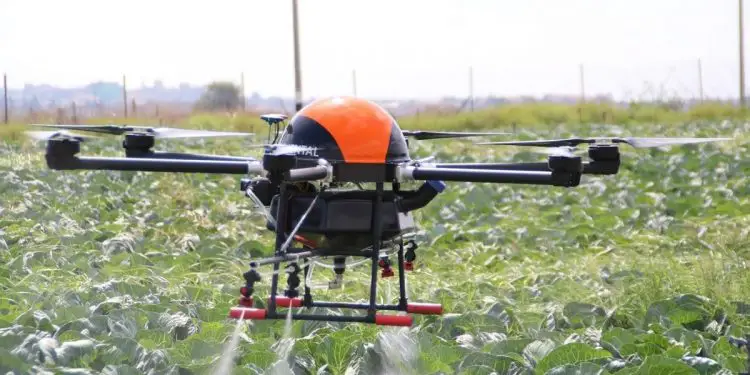 Increased cooperation to help Africa feed itself and the world
Increased cooperation to help Africa feed itself and the world
Agriculture remains Africa’s saving grace in the face of the upheaval occasioned by the Covid-19 pandemic.
With this, agritech becomes all the more important in the sector that remains the biggest employer on the continent of 1.2 billion people.
Dwindling productivity occasioned by climate change effects, pest and diseases, and post-harvest losses is still a huge challenge for farmers on the continent which is increasingly importing what it should be producing.
Two years ago, AfDB President Akinwumi Adesina called on farmers to acquire new technologies to transform agricultural production.
Read: AfDB President: Africa should feed the world not importing US$ 35 billion food annually
He said that due to the limited capacity of production, Africa was falling behind in becoming the breadbasket of the world. For perspective, the continent spends an upwards of US$ 35 billion per year importing food.
Speaking at an Agriculture conference in the U.S., Adesina said that technology transfer was needed immediately since evidence from countries like Nigeria demonstrated that technology with strong government backing was already yielding positive results.
With this challenge, a section of Africa’s most promising small and medium enterprise (SME) agripreneurs have called for more selective investment, accelerated business acquisitions and increased cooperation to help Africa feed itself and the world.
To this end, Africa must seize the opportunities offered by disruptions like the pandemic to deepen the digitalization of agricultural value chains if the continent is to transform the sector.
At a side event dubbed Integrating African Food Systems through the Lens of SME Champions organised by the African Development Bank (AfDB), panel members were selected because they are using innovative solutions, tailored their business models, have a proven track record and shown to have an impact on food systems.
The virtual side-event was ahead of Africa’s largest agriculture conference – the African Green Revolution Forum (AGRF) – which was held online for the first time, from September 8-11.
AfDB is creating a platform to give the innovators more visibility so that policymakers can understand the challenges they face and help the SME Champions to grow.
The group of African “SME Champions” – heads of SMEs across the continent’s food system production, processing, logistics, agricultural digitization and cold storage chain solutions sub-sectors describe the challenges and opportunities they face in trying to meet Africa’s food systems demands.
“Technologies to achieve Africa’s green revolution exist but are mostly just sitting on the shelves. The challenge is a lack of supportive policies to ensure that they are scaled up to reach millions of farmers,” Adesina said in 2018.
Some said policy, programmes and financing in Africa are geared toward larger organizations and businesses – and that there is still too heavy a focus on agricultural imports to Africa.
“Especially if you are an SME it is really challenging to penetrate the market and do something significant,” said Nicholas Alexandre, Global Head of Commercial at LORI, a Kenya-based tech-driven logistics company.
Read: Renewable energy: a boon to Africa’s jobless?
Others shared their experiences in overcoming challenges. For example, Nnaemeka Ikegwuonu, head of Nigeria-based ColdHubs, says his solar power, cold storage facility company helps farmers’ produce stay fresher, longer, reducing the need to rush a product to market at less competitive prices.
ColdHubs says it invested in the storage infrastructure so that farmers could benefit from the service at a reasonable price.
“We are taking the risk out of ownership of huge cold rooms from smallholder farmers because we design, operate and maintain these cold rooms. We offer a pay-as-you-use service model,” said Ikegwounu.
Kenya’s SunCulture Company, which provides farmers with solar-powered irrigation services, also uses a similar “pay-as-you-grow” service fee programme. SunCulture CEO and SME Champion Samir Ibrahim told webinar attendees that there has been sufficient development and investment support to African entrepreneurs to know what works – and that it is time to step upscaling efforts. “We know that there are proven solutions, the focus now should be to target finance and partnerships to scale those…We need donors and multilateral to start cutting much bigger checks for much fewer interventions…so we can see the needle moving,” Ibrahim said.
Other champions said building up Africa’s agriculture sector lies in building up its agriculture value chains. SME Champion Patricia Zoundi, who started up Canaan Land, a Cote d’Ivoire-based company that trains women in rural areas in order to develop sustainable and inclusive agriculture said, “We have north-north cooperation. We have south-south cooperation. Now it is time to have SME-to-SME cooperation…On this panel, I see three SMEs with which I can collaborate in marketing… [they offer] something I need in my value chain.”
Toda closed the session by reassuring SME Champions that their insights shared would be transformed into key messages intended to reimagine policy, resulting in the accelerated transformation of Africa’s food systems. “There is so much for us to share, proven solutions for us to amplify, to bring forward to scale and consolidate through partnerships and finance.”




No comments :
Post a Comment